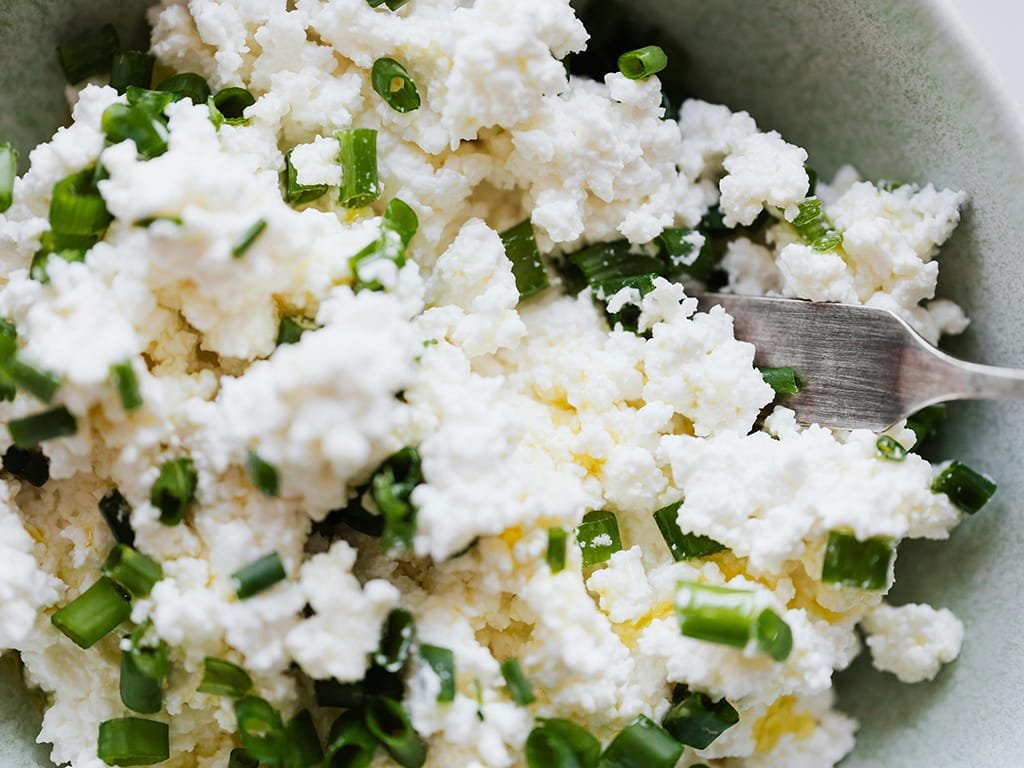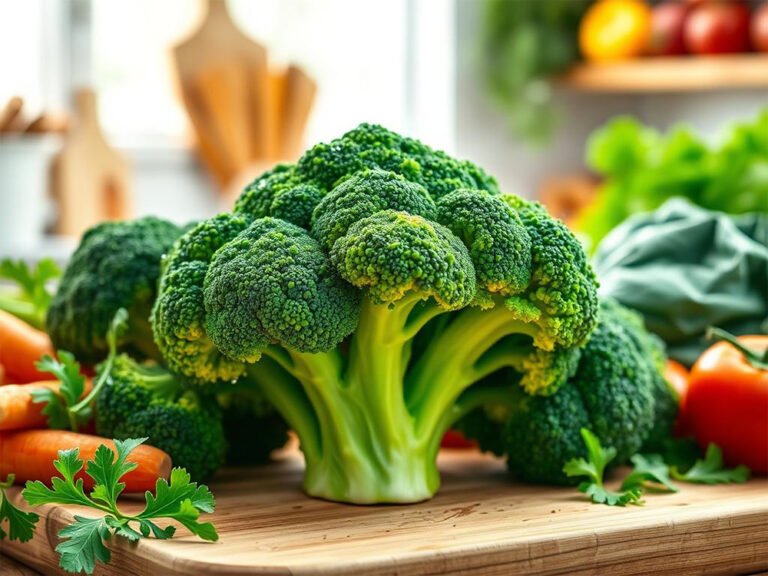The Best Fluffy Pancakes recipe you will fall in love with. Full of tips and tricks to help you make the best pancakes.
Cottage Cheese Nutrition Facts and Health Benefits of Small Curd
Cottage cheese is a nutrient-dense food that offers a variety of health benefits, making it a popular choice for those looking to enhance their diet. This dairy product is rich in protein, which is essential for muscle repair and growth, and it contains a good amount of calcium, which is vital for maintaining strong bones and teeth. Additionally, cottage cheese is low in fat and calories, making it an excellent option for weight management. It also provides important vitamins and minerals, including B vitamins that support energy metabolism and antioxidants that help combat oxidative stress. Incorporating cottage cheese into your meals can promote satiety, making it easier to control hunger and maintain a balanced diet.
Table of Contents
Toggle
What Are the Nutrition Facts of Cottage Cheese?
How is Cottage Cheese Made?
Cottage cheese is made by acidifying milk, which leads to the formation of curds. The milk, often sourced from nonfat milk, is cultured with specific bacteria to help in the coagulation process. This curdling separates the solid curds from the liquid whey, which is then drained to achieve the desired consistency. The curds can be left as they are for small curd cottage cheese or cut into larger pieces for large curd varieties. Additional ingredients like guar gum, citric acid, or bean gum may be added to enhance texture and flavor.
Understanding the Nutrient Content in a Serving
A serving of cottage cheese provides a rich array of nutrients, making it a staple in many diets. It contains high levels of protein, particularly casein protein, which is slowly digested and beneficial for muscle repair and growth. The cheese also offers calcium, which is crucial for bone health, and potassium, important for heart and muscle functions. The nutrition facts label tells you how much a nutrient in a serving of food contributes to a daily diet. For instance, cottage cheese contains low amounts of sugar and dietary fiber but is rich in protein and essential minerals.
What is the Daily Value of Nutrients in Cottage Cheese?
The daily value (DV) of nutrients in cottage cheese can vary depending on the type and serving size. Generally, a cup of cottage cheese provides a substantial percentage of the daily recommended intake of protein, calcium, and phosphorus. It’s a low-calorie food, making it an ideal choice for those who are mindful of their calorie intake. While it does have saturated fat, opting for nonfat or low-fat varieties can mitigate this. Cottage cheese nutrition facts show that it is a versatile and nutritious food that can be part of a balanced diet when used for general nutrition advice.
Is Cottage Cheese Good for You?
Benefits of Cottage Cheese for General Nutrition
Cottage cheese is an excellent choice for enhancing general nutrition due to its nutrient density. It is a complete source of protein, providing all essential amino acids required by the body. The calcium content supports strong bones and teeth, while the presence of B vitamins aids in energy metabolism. As a low-calorie, high-protein food, it fits well into most dietary plans and is often included in weight management programs. The potassium in cottage cheese also helps maintain proper fluid balance and supports cardiovascular health.

How Cottage Cheese May Help in Weight Management
One of the significant benefits of cottage cheese is its role in weight management. The high protein content in cottage cheese helps increase satiety, reducing the likelihood of overeating and aiding in appetite control. Consuming adequate protein, like that found in cottage cheese, can boost metabolism and promote fat loss while preserving lean muscle mass. Additionally, since cottage cheese is low in calories, it can be included in calorie-restricted diets without compromising nutritional intake, making it a valuable component of a healthy weight loss strategy.
Does Cottage Cheese Provide Essential Nutrients?
Cottage cheese provides a plethora of essential nutrients that are vital for health. Apart from being a source of protein, it offers a good amount of calcium, which is necessary for bone health and proper muscle function. The magnesium and phosphorus present in cottage cheese further support bone density and energy production. Its low sugar content makes it suitable for those monitoring their sugar intake, while the presence of probiotics in some cultured varieties can enhance digestive health. Thus, cottage cheese is an excellent source of essential nutrients with various health benefits.
What Are the Health Benefits of Cottage Cheese?
How Cottage Cheese Contributes to Bone Health
Cottage cheese is an excellent source of calcium, a mineral that is crucial for maintaining bone density and strength. Regular consumption of calcium-rich foods like cottage cheese can help prevent osteoporosis and other bone-related conditions. The phosphorus content in cottage cheese also plays a vital role in bone health by working alongside calcium to build and repair bones. Including cottage cheese in your diet can provide the necessary nutrients to support strong and healthy bones throughout your life.
Can Cottage Cheese Improve Digestive Health?
Some varieties of cottage cheese are cultured with probiotics, beneficial bacteria that support digestive health. These probiotics can help maintain a healthy balance of gut flora, improve digestion, and enhance nutrient absorption. Cottage cheese also contains a small amount of dietary fiber, which aids in bowel regularity and overall digestive function. By incorporating probiotic-rich cottage cheese into your diet, you can potentially improve your digestive health and enhance your overall well-being.
How Does Cottage Cheese Support Muscle Growth?
The high protein content in cottage cheese makes it an ideal food for muscle growth and repair. It contains both casein and whey protein, which provide a sustained release of amino acids, essential for muscle recovery and development. Athletes and fitness enthusiasts often include cottage cheese in their post-workout meals to support muscle synthesis and reduce muscle breakdown. The presence of essential amino acids in cottage cheese ensures that the body has the necessary building blocks for muscle growth and maintenance.

How Many Calories and Nutrients Are in a 16 Oz Serving of Cottage Cheese?
Calories and Protein Content in 16 Oz
A 16 oz serving of cottage cheese typically contains around 200-240 calories, although this can vary based on the fat content and type of milk used. This serving size provides approximately 28 grams of protein, making it a substantial protein source for those looking to increase their protein intake. The protein in cottage cheese is high-quality and complete, offering all the essential amino acids needed for various bodily functions.
What is the Saturated Fat Level in Cottage Cheese?
The saturated fat level in cottage cheese depends on whether it is made from whole milk, low-fat, or nonfat milk. Whole milk cottage cheese contains higher saturated fat levels, while nonfat and low-fat options have significantly less. For those managing saturated fat intake, nonfat or low-fat cottage cheese can be a healthier option. Despite its fat content, cottage cheese remains a nutritious addition to the diet due to its protein and calcium benefits.
Understanding the Sugar Content and Dietary Fiber
Cottage cheese contains relatively low amounts of total sugars, making it a suitable option for those monitoring their sugar intake. The sugar present is primarily lactose, a naturally occurring sugar in dairy products. Dietary fiber is minimal in cottage cheese, but it can be paired with fiber-rich foods such as fruits or vegetables to enhance fiber intake. Despite its low sugar and fiber content, the nutritional benefits of cottage cheese make it a valuable food for a balanced diet.
What Types of Cottage Cheese Exist and How Do They Differ?
Differences Between Small Curd and Large Curd Cottage Cheese
Cottage cheese comes in two main forms: small curd and large curd. Small curd cottage cheese is made with rennet, an enzyme that helps curdle the milk, resulting in smaller curds with a creamier texture. Large curd cottage cheese, on the other hand, is made without rennet, resulting in larger, more distinct curds. The choice between small and large curd cottage cheese often comes down to personal preference, as the nutritional content remains largely similar.
Nonfat vs. Regular Cottage Cheese: Which is Healthier?
When comparing nonfat and regular cottage cheese, the primary difference lies in the fat content. Nonfat cottage cheese is made from skim milk and contains little to no fat, making it a lower-calorie option. Regular cottage cheese, made from whole milk, contains higher fat levels but also provides a creamier texture and richer flavor. Both options are nutritious, but nonfat cottage cheese may be preferable for those seeking to reduce calorie and saturated fat intake while still benefiting from high protein content.
Exploring the Ingredients: Guar Gum, Citric Acid, and Bean Gum
Some cottage cheese varieties include additional ingredients like guar gum, citric acid, and bean gum to enhance texture and flavor. Guar gum is a natural thickening agent that helps improve the creaminess of the cheese without adding extra calories. Citric acid is used to maintain freshness and provide a slight tangy taste. Bean gum, similar to guar gum, acts as a stabilizer, ensuring a consistent texture. These ingredients are generally safe and contribute to the overall quality and taste of cottage cheese.

conclusion
Small Curd Cottage Cheese isn’t just a creamy delight for your palate; it’s a powerhouse of nutrition that fits seamlessly into a variety of lifestyles. Packed with high-quality protein, essential vitamins, and minerals, this versatile food offers many health benefits – from supporting muscle growth and weight management to promoting bone health and enhancing gut function. Whether you’re crafting a post-workout snack, looking for a low-fat alternative in recipes, or simply savoring its rich, tangy taste, small curd cottage cheese is a choice that aligns with both health-conscious and flavor-focused diets.
But how will you incorporate it into your routine? Perhaps as a quick breakfast bowl with fresh fruits or a savory addition to your favorite salads? The possibilities are endless, and it’s up to you to explore how this nutrient-dense option can elevate your meals and improve your well-being. Start experimenting today – your body will thank you for it!



